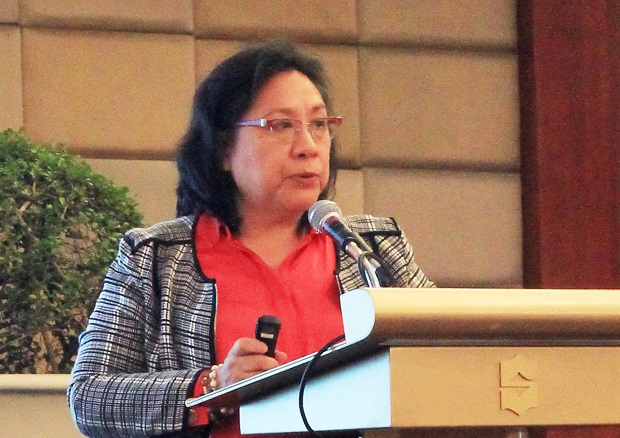Labor exec reiterates BPO worker safety is paramount during disasters

Date:
May 27, 2019
A top official of the Department of Labor and Employment (DOLE) said the welfare and safety of call center workers are the main priorities under the country’s labor laws, especially during emergencies.

DOLE director Teresita Cucueco
DOLE director Teresita Cucueco made this assertion during the first General Membership Meeting for 2019 of the Contact Center Association of the Philippines (CCAP) last April 30 at the Shangri-La Manila Hotel in Makati City.
Cucueco cited three labor laws and explained why and how each legislation could be advantageous to every contact center agent and employee across the country.
She said Republic Act No. 11058 or the Occupational Safety and Health Law upholds the overall safety of all employees in their workplaces at all times.
“We are pleased to have this assurance that during times of catastrophe, employees’ safety and health would come as a top priority in the workplace,” said Cucueco.
The Occupational Safety and Health Law provides penalties for employers that fail to observe measures mandated by the law during times of calamities and disasters.
For its part, CCAP said its member-organizations was among the first industry groups that assured the public of the safety standards that were observed during and after the Luzon earthquake.
Cucueco also cited Republic Act No. 11165 or the Telecommuting Act, which provides a viable option for any contact center agent to render work hours outside the company’s designated workplace.
The employee can work at home or at a co-working space — where he/she can still perform the activities without any disruption and where there is available equipment and technology to facilitate business processes.
CCAP president Jojo Uligan said telecommuting is not a new option for the industry. “Telecommuting was not successful when I piloted such a program in 2003,” he recalled. “There was still no sufficient technology back then and security was another issue in terms of data privacy. However, these days, we know that these setbacks can effectively be addressed.”
The law also has provisions that serve as protection to the rights of volunteer agents who intend to undergo this setup.
“The employer and employee in the telecommuting program shall set mutually agreed policies to cover important factors like eligibility, code of conduct, performance assessment measures, observance of data privacy policy, and appropriate alternative workplaces,” Cucueco said.
Finally, the DOLE official said working mothers can avail of the benefits of Republic Act No. 11210 or the Expanded Maternity Leave Law.
Under this new legislation, a working mother can file a paid leave of up to 105 days along with an added option to extend that leave — though without pay — for another 30 days.
The idea is to give working mothers more time to physically, mentally, and emotionally recover following childbirth. It is also assumed that such moms would use the leave credits to spend more quality time and take care of their newborn babies.
They can also allocate up to seven days of leave (though this will be deducted from the 105 days) to the child’s father, aside from his own paternity leave.
Source: Newsbytes.ph














